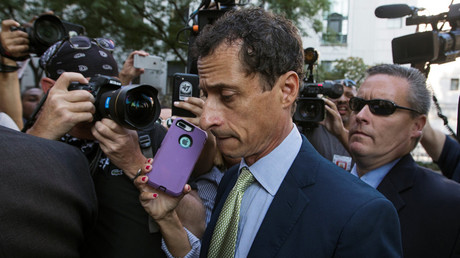We must regulate hate speech, without forbidding unpopular speech – media analysts
The principle should be that what is already illegal offline should be illegal online, but you’ve got to define it very tightly as nobody accepts full freedom of speech, journalist Martin Summers told RT. It is all about balance, added Paul Viollis, who joined the debate.
A new police unit combating hate crimes on the internet is to be set up in the UK. The British Home Secretary says the problem needs to be correctly dealt with.
“Online hate crime is completely unacceptable. What is illegal offline is illegal online, and those who commit these cowardly crimes should be met with the full force of the law,” Home Secretary Amber Rudd said.
RT heard opinion from the independent journalist and commentator Martin Summers and commentator Paul Viollis, CEO of Viollis Group International.
RT: Hate crimes are a pressing issue in the UK. But is policing the internet the right way to go about dealing with it?
Paul Viollis: Unfortunately, I wish we didn’t even have to have this conversation, but it is necessary. It is because there are no parameters at this point. The amount of crime that is perpetrated on the internet – from hate crimes to hate speech – even to the recruitment and planning ISIS uses the internet for - is something that we absolutely have to put our hands on. And again I wish we didn’t have to have this conversation, but we do and compliments to Secretary Rudd for taking the first step on this in the global community.
RT: Is that a fair point?
Martin Summers: If you say something to somebody’s face which is a threat or an implied threat, that is illegal already. So in a sense, what we are saying here is that it is going to be the same for online versions of the same kinds of crime. But you’ve got to define it very tightly. Nobody accepts full freedom of speech. I could break into swearing now, and that wouldn’t be acceptable for all sorts of reasons. Society does have rules about language, but you’ve got to be very careful you’re not squeezing out legitimate debate. We will have to see how this operates, and hopefully, it will be done in a sensible rather than a stupid way.
RT: Some users on the forums are complaining that their comments have been blocked and they are very angry about the fact that they are being censored. Do we need to worry about going too far in that direction?
PV: I do, I do think we have to. And that is why the key word here is balance. I agree with what you were saying. It is all about balance. We don’t want to eliminate the ability for us to have, as you are facilitating right now, a healthy good solid debate. We don’t want to do that. Because I think that damages so many things in our global community. But we do need to put our arms around hate speech. Just the sheer number of suicides globally that is tied to hate speech alone is unprecedented in the last three years…That is just one example. I agree with the side that, “We don’t want to eliminate debate.” But two, as my colleague was just mentioning. If in fact, it is illegal offline, it needs to be illegal online.
RT: Is it right to send people to prison for something they write online?
MS: People don’t get sent to prison always for these offenses. They can be cautioned…but the law when online or offline should be the same. And the principles behind it should be the same. I think one of the problems online is people use anonymity, and the kind of the nature of debates online is often very vituperative because you wouldn’t say that to somebody you were sitting in a room with because the body language wouldn’t allow you. And people just allow themselves when they go online, to be almost alter egos of themselves, and they say the thing they wouldn’t say to people’s faces. But we’ve got to be realistic and adult about this. People are going to have strong opinions, but they can’t go and threatening groups of people or individuals, because that is just not on…The principles should surely be that what is already illegal offline should be illegal online for the same kinds of reasons. It is not really a big step to have the same rules in both spheres, is it?...The thing I would say about online remarks is they are traceable; it’s on the record, and therefore it should be quite straightforward to find out who said what and hold them to account. But we mustn’t go to the extent of forbidding people from saying things that are just unpopular or difficult, and that’s going to be the real test.



0 Comments:
Post a Comment
Subscribe to Post Comments [Atom]
<< Home